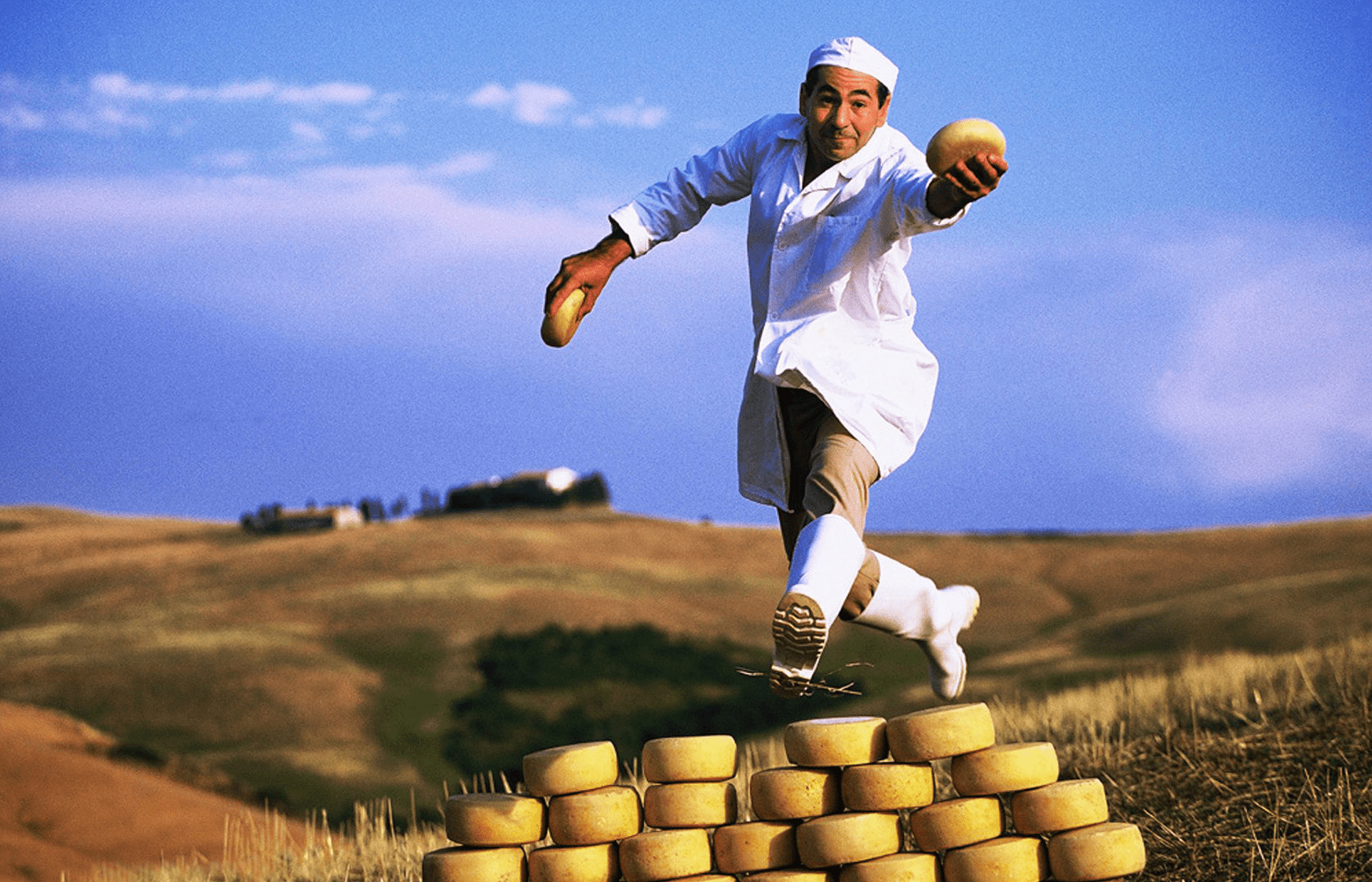
The Little Shepherd and Renato Zero
The Karma of Giovanni Cannas lies in destiny, the unpredictable force that animates the guiding spirit of the dynamic owner of Fattoria Lischeto in Volterra, an agropastoral organic farm that, following its rigorous tradition, has built its successful path. Destiny unveils itself in Bitti, where his family originated, a village perched amidst the rugged heights of Barbagia in Sardinia, depicted by the Nobel Laureate Grazia Deledda in her novels “Canne al Vento” and “Colombi e sparvieri.”
An ancient village: alleyways and hidden corners built upon the foundations of the Roman Mansio, the nuragic complex of Su Romanzesu, the culture of peasant civilization, the multimedia museum of Canto a Tenores, a UNESCO World Heritage site. In this nurturing environment, amidst the Bitti overlooking the whitewashed karstic ridge of Sopramonte, Giovanni’s karma, the cause and effect of his destiny, takes root. The cause was his father’s decision to leave the beloved island in search of greener pastures on the mainland.
It was a time when the economy was struggling to recover from the ravages of war. Salvatore embarked with his flock, disembarking at Civitavecchia, and journeyed towards Tuscany. The effect was the purchase of the current estate of Lischeto near Volterra. Volterra is Giovanni’s birthplace, ground zero of a life that, like a screenplay, will unfold a plot where suggestions, chance encounters, and destiny will converge inevitably.
“I started helping my dad at eight, but it was only after middle school, from fifteen to eighteen, that I began working the land and herding sheep,” recalls Giovanni. “Dad was tired of that life; I proposed to manage the livestock, and he agreed! That year, 1981, I moved to the farm; there was no electricity, I heated water on a gas cylinder, washed in a tub, and slept on a mattress without a frame, but I was happy, and in the early morning, I grazed my sheep amidst the marvelous hills of this land.”
Month after month, donning the hats of a surveyor, bricklayer, painter, plumber, electrician, Giovanni began the renovation of the ancient building, creating a spacious and bright open space with an adjoining coveted comfortable and spacious bathroom, equipped with all the amenities that make a house a warm, clean, and welcoming refuge. In the adjacent small building, after milking, he prepared cheese, pecorino cheese wheels, and ricotta baskets as he had learned from his grandmother Giuliana, the roots of his entrepreneurial life that would soon take off.
“At twenty-two, I frequented Ciucheba in Castiglioncello, a historic nightclub now sadly abandoned,” he recalls, “wonderful years, I loved dancing and listening to good music. There were characters like Carlo Conti, Parietti, Jerry Calà, Abatantuono, Benigni, Lucio Dalla, Nannini, Bertè, and Teocoli, just to name a few of the stars who performed at Ciucheba. I was there every night, I had a special pass: two cheese wheels; one for the bouncer who guaranteed my entry, the other for the bartender who ensured me shaker cocktails galore! To everyone, I was “Il Pastorello” (The Little Shepherd).
One evening, Mario Donati, the legendary club owner, sent for me: Giovanni, he said, tomorrow a special guest of mine, who loves fish and adores ricotta, will be my guest. If you prepare a good product, I’ll introduce you to him. The next morning, I prepared the ricotta, which turned out better than ever, soft, delicate, velvety, light. In the evening, I delivered it to Donati before hitting the dance floor.
Late at night, he sent for me: my ricotta had been greatly appreciated! Come, and I’ll introduce you to my guest, he said, wrapping his arm around my shoulders as he guided me to the sitting room. The guest was standing with his back turned: long, cascading jet-black hair flowing down to his shoulders; he turned around, and I was amazed, it was Renato Zero, my idol! He smiled at me, complimented me, and shook my hand with the strength and sincerity of his character.”
That unexpected, adrenaline-fueled episode ignited Giovanni’s enthusiasm in his choices. In 1990, he opened the first dairy, which the following year transformed into the first certified organic company in Italy, and today, grown on the solid values of family tradition, ranks among the elite of internationally recognized quality excellence.
The merit of “Il Pastorello” is also recognized for being the innovative proponent of social agriculture, which, following the dictates of ethical responsibility and environmental sustainability, involves people living in disadvantaged and socially difficult situations in the manual activities of the company, promoting their integration through work that generates income, restores happiness, and gives meaning to existence.
16 novembre 2020
Nevio Doz

